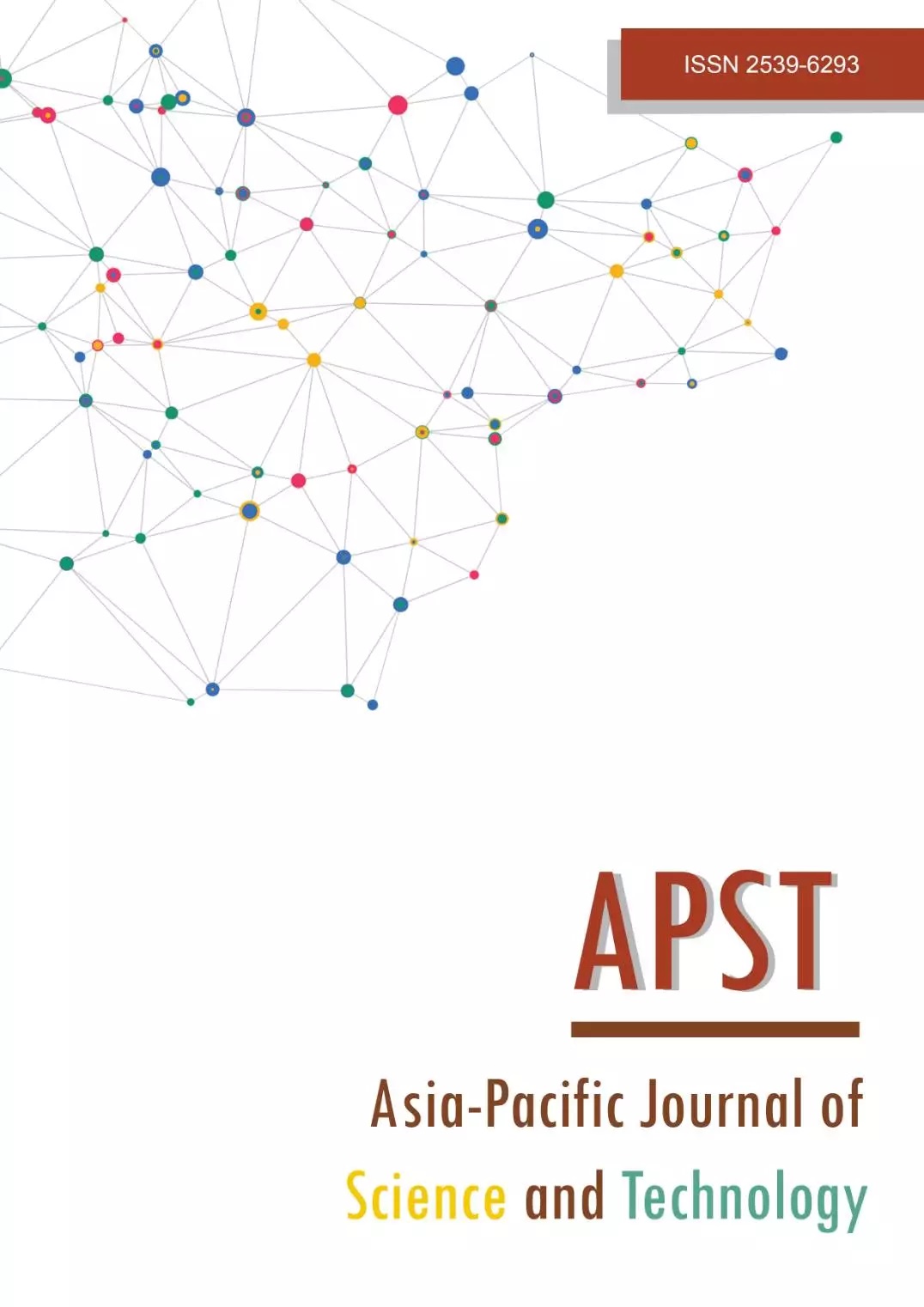Screening of Lipolytic producing microbes from microbial consortium for treatment of palm oil contaminated wastewater
Main Article Content
Abstract
FOGs (fat, oil, and grease) pollution in domestic wastewaters has been a significant environmental issue worldwide. This study was designed to determine the potential of bacterial strains isolated from wastewater microbial consortiums to biodegrade the FOGs. The isolated bacteria were characterized by standard Gram staining method and lipid degradation assays. Gram staining showed that four of the selected isolates, (M9P8, MRS-1A.3W, MRS-1B-1W, and MRS-1B-1.C) were Gram-positive, rod-shaped bacteria. One isolate PCA-3A.1.Y, was a Gram-positive coccus. All five bacteria displayed lipase activity as demonstrated by tributyrin hydrolysis when tested using the drop plate method on tributyrin agar. Lipase activity was found to be highest in MRS-1B-1. W strain, at 5.89±2.16 U lipase/mg protein. Further analysis was conducted to determine the potential for palm oil reduction. The results showed that, in 0.5 Plate Count Broth (PCB) with 1% (v/v) palm oil, the five bacterial isolates had a 7.29% to 32.37% reduction of palm oil. It is concluded that this approach has resulted in collection of promising bacterial isolates that may be useful for direct applications in biodegradation of lipid-rich wastewaters.
Article Details

This work is licensed under a Creative Commons Attribution-NonCommercial-NoDerivatives 4.0 International License.
References
Popoola B, Olanbiwoninu A, Fashogbon R. Bioremediation of vegetable oil contaminated soil with two microbial isolates. Adv Microbiol. 2022;12(04):218-241.
Gawad HAE. Oil and grease removal from industrial wastewater using new utility approach. Adv Environ Chem. 2014;2014:1-6.
Parthipan P, Preetham E, Machuca L, Rahman P, Murugan K, Rajasekar A. Biosurfactant and degradative enzymes mediated crude oil degradation by bacterium Bacillus subtilis A1. Front Microbiol. 2017;8:1-14.
Javed S, Azeem F, Hussain S, Rasul I, Siddique M, Riaz M, et al. Bacterial lipases: a review on purification and characterization. Prog Biophys Mol Biol. 2018;132:23-34.
Chandra P, Enespa, Singh R, Arora P. Microbial lipases and their industrial applications: a comprehensive review. Microb Cell Fact. 2020;19(1):169.
Patel U, Chandpura J, Chauhan K, Gupte S. Screening and isolation of an organic solvent tolerant lipase producing bacteria from various oil contaminated sites. IJAM. 2018;21(01):22-36.
Esmaeili N. Isolation and identification of palm oil and soybean oil degrading bacteria from bio-extract [thesis]. Samut Prakan: Assumption University; 2016.
Bala J, Lalung J, Gheethi AAS, Kaizar H, Ismail N. Reduction of organic load and biodegradation of palm oil mill effluent by aerobic indigenous mixed microbial consortium isolated from palm oil mill effluent (POME). Water Conserv Sci Eng. 2018;3(3):139-156.
Lanka S, Latha J. A short review on various screening methods to isolate potential lipase producers: lipases-the present and future enzymes of biotech industry. Int J Biochem. 2015;9(5):207-219.
Bradford M. A rapid and sensitive method for the quantitation of microgram quantities of protein utilizing the principle of protein-dye binding. Anal Biochem. 1976;72(1-2):248-254.
American Public Health Association (APHA). Standard methods for the examination of water and wastewater. 20th ed. Washington: APHA; 1999.
Gheethi AAS. Recycling of sewage sludge as production medium for cellulase by a Bacillus megaterium strain. Int J Recycl Org Waste Agric. 2015;4(2):105-119.
Bhumibhamon O, Koprasertsak A, Funthong S. Biotreatment of high fat and oil wastewater by lipase producing microorganisms. Agric Nat Resour. 2002;36(3):261-267.
Elumalai P, Parthipan P, Huang M, Muthukumar B, Cheng L, Govarthanan M, et al. Enhanced biodegradation of hydrophobic organic pollutants by the bacterial consortium: impact of enzymes and biosurfactants. Environ Pollut. 2021;289:117956.
Charoenpanich A. The study of lipase producing microorganisms from bio-extract for fat and lipid treatment in wastewater at laboratory scale. Student’s report. Bangkok: Assumption University; 2016.


